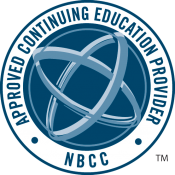Sessions
Day 1: Monday, February 6
Presenter(s): Drs. Natasha Barnes, Ed.D., GCDF, CCC, NCC and Kenya Johns, LPC, NCC, CAADC, CCTP, ACS
The purpose of this presentation is to better educate the participants of the warning signs about substance use. In addition, the presentation aims to decrease incarceration and recidivism of minors by addressing the substance use concerns.
Presenter(s): Dr. Startasha Dillard, Ed.D., LPC, CAC-II, NCC
This presentation aims to provide the attendees with further education on marijuana and learning ways to facilitate conversations regarding marijuana use with clients.
Presenter(s): Dr. Arien K. Muzacz, PhD., NCC, LMHC
In this presentation, participants will learn about older adults increased risk of developing SUDs, how to integrate behavioral and physical health treatment, the basic steps to administer the SBIRT to older adults, how telemedicine can reduce barriers to healthcare access for older adults, and some barriers to using telehealth with older adults.
Day 2: Tuesday, February 7
Presenter(s): Dr. Victoria Giegerich, Ph.D., LPCC, LICDC
This session will detail contributing factors to the supervisory relationship with an emphasis on counseling ethics and recommendations for clearly incorporating ethics and supervision competencies into supervision sessions.
Presenter(s): Dr. Andrea McGrath, Ph.D., LAC, LIMHP
This presentation explores the unique ethical and legal dimensions of addiction counseling practice. This presentation provides information on key ethical issues, including boundaries and multiple relationships, values conflicts, and working with mandated clients. Participants will gain understanding of how these concerns may present specific to work with substance use clients and gain strategies for addressing ethical issues.
Presenter(s): Drs. Michele Mahr, Ph.D, CRC, Robert Paul Maddox II, Ph.D., Ed.S. LPC, NCC, and Jonathan Carrier, Ph.D.
During the presentation, participants will learn steps in an ethical decision-making model, explore the benefits of personal wellness in their work, and identify helpful self-care resources within the substance abuse and addiction field.
Day 3: Wednesday, February 8
Presenter(s): LaRhonda Flowers,MA, LIMHP, LADC, SAP
Attendees will gain an understanding of barriers that individuals face post-incarceration that impact successful reentry and reintegration. Participants in this session will also be able to understand and identify strategies to implement when working with individual’s post-incarceration and to identify biases/judgements that may hinder their connection with clients.
Presenter(s): Dr. Mark Schwarze, Ph.D., NCC, LCAS, CSS, LCMHC-S
This presentation will describe basic neurobiological concepts related to addiction, explain neuropsychopharmacological effects of addiction, and compare treatments and interventions used to address neurobiological dysregulation caused by addiction.
Presenter(s): Dr. Sofia Georgiadou, Ph.D. LPC-S, LMFT, NCC
This presentation will equip the attendees with concrete tools to develop trusting therapeutic relationships with foster youth clients recovering from addiction and adverse childhood experiences.
Day 4: Thursday, February 9
Presenter(s): Drs. Jennifer Smith Ramey, LPC and Frederick Volk, Ph.D.
This presentation will offer strategies and a rural case example of research-based practices to improve access to treatment for at-risk youth, including a diverse leadership team, needs assessment, a designated service coordinator, clear expectations, shared accountability, ongoing professional development, and regular evaluation of effectiveness.
Presenter(s): Wendy F. Mincer, MS, MA, LPC, NCC
In this presentation, participants will learn about Harm Reduction and how it works, discuss how best to use Harm Reduction services and programs, analyze how Harm Reduction tenants can be used in a person-centered format, and will investigate how to apply and improve counseling techniques.
Presenter(s): Lexi Heringer Wimmer, MA, LPC, LAC
This presentation will consider a holistic perspective of religion and/or spirituality beliefs and practices in substance use disorder treatment. The presentation will also outline concerns related to spiritual bypassing that can have detrimental impacts on client progress and must also be considered and addressed by counselors in treating substance use disorders.
Day 5: Friday, February 10
Presenter(s): Dr. Amanda Giordano, Ph.D. LPC
In this presentation, attendees will learn about the types, prevalence, and neuroscience of sexually based addictive behaviors, gain knowledge related to assessment instruments, 12-step support groups, and evidence-based practices to treat sexually based addictive behaviors, and become familiar with multicultural and ethical considerations in the treatment of sexually based addictive behaviors.
Presenter(s): Dr. Chad Luke II, Ph.D., LPC-MHSP, NCC, ACS, MAC
During this presentation, participants will learn about a neuroscience-based model of substance use disorder treatment, they will examine the foundations for incorporating neuroscience into clinical practice and will discuss the process for using the model to treat individuals and their families in a destigmatizing and science-based way.
Presenter(s): Sai Snigdha Talluri, MS, MA, CRC, LPC and Jessica Backus, M.S.
The presentation will outline how clinicians and other professionals in the field can work to erase the stigma of SUD.
Conference Presented By:

The Counseling and Human Resource Development program at South Dakota State University has been approved by NBCC as an Approved Continuing Education Prover, ACEP No. 4142. Programs that do not qualify for NBCC credit are clearly identified. The Counseling and Human Resource Department is solely responsible for all aspects of the programs.

This material is based upon work that is supported by the National Institute of Food and Agriculture, U.S. Department of Agriculture, under award number 1 H79 TI083272-01. SDSU Extension is an equal opportunity provider and employer in accordance with the nondiscrimination policies of South Dakota State University, the South Dakota Board of Regents and the United States Department of Agriculture. County commissions, North Dakota State University and U.S. Department of Agriculture cooperating. NDSU does not discriminate in its programs and activities on the basis of age, color, gender expression/identity, genetic information, marital status, national origin, participation in lawful off-campus activity, physical or mental disability, pregnancy, public assistance status, race, religion, sex, sexual orientation, spousal relationship to current employee, or veteran status, as applicable. Direct inquiries to Vice Provost, Title IX/ADA Coordinator, Old Main 201, NDSU Main Campus, 701-231-7708, ndsu.eoaa@ndsu.edu. This publication will be made available in alternative formats for people with disabilities upon request, 701-231-7881.

